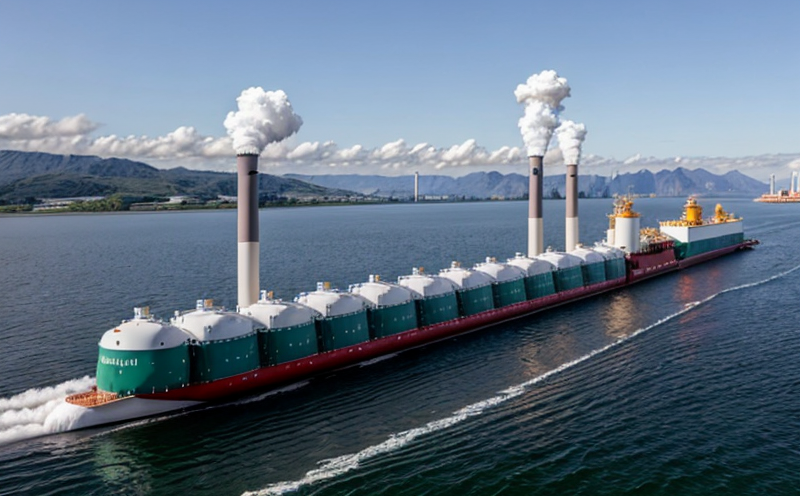
-
Renewable Energy Testing and Standards-
Hydrogen Energy Certification and Testing-
Standards for Hydrogen Power Generation Systems
We provide comprehensive solutions designed to help our clients mitigate risks, enhance performance, and excel in key areas such as quality, health & safety, environmental sustainability, and social responsibility.
Discover
For many years, our organization has been operating successfully, boasting modern laboratories that meet international standards. These laboratories are equipped with the latest technology devices and equipment, and we have built a strong team of experienced and trained personnel to operate them.
DiscoverWelcome to Eurolab, your partner in pioneering solutions that encompass every facet of life. We are committed to delivering comprehensive Assurance, Testing, Inspection, and Certification services, empowering our global clientele with the ultimate confidence in their products and processes.
Discover
-
Renewable Energy Testing and Standards-
Hydrogen Energy Certification and Testing-
Standards for Hydrogen Power Generation SystemsStandards for Hydrogen Power Generation Systems
Hydrogen power generation systems are becoming increasingly important as a clean and sustainable energy source to reduce greenhouse gas emissions and mitigate climate change. However, ensuring the safe and efficient operation of these systems requires adherence to strict standards and guidelines. In this article, we will delve into the importance of standards for hydrogen power generation systems, highlight key regulations and guidelines, and provide detailed explanations on specific aspects.
Regulatory Framework
The regulatory framework for hydrogen power generation systems is still evolving, with various organizations and governments establishing their own set of rules and guidelines. Some notable examples include:
Pressure relief devices: These devices must be designed and installed according to ASME PTC-25 standards to prevent overpressure and ensure safe operation.
Electrical isolation: All electrical components must be isolated from the fuel cell system to prevent short circuits and electrical shock.
Fire suppression systems: These systems must be designed and installed according to NFPA 2 standards to provide quick and effective fire extinguishing.
ISO 11154 specifies the requirements for fuel cell systems, while ASME B31.12 outlines the requirements for hydrogen piping and pipelines.
2. How do I ensure compliance with NFPA 2 standards for fire suppression systems in my hydrogen power generation system?
You must design and install the fire suppression system according to NFPA 2 guidelines, which include specifications for the type and quantity of extinguishing agent used.
3. What are the key considerations for designing a pressure vessel for hydrogen storage?
You must adhere to ASME PTC-25 standards, which provide guidelines for design, construction, and operation of pressure vessels used for hydrogen storage.
Conclusion
Standards for hydrogen power generation systems play a critical role in ensuring safe and efficient operation. By understanding the key aspects of these standards, including safety considerations, testing and documentation, and regulatory framework, you can ensure compliance with relevant regulations and guidelines. Remember to consult the relevant standards documents and seek professional advice when necessary.

Construction and Engineering Compliance
Construction and Engineering Compliance: Ensuring Safety, Quality, and Regulatory Adherence In the ...

Military Equipment Standards
Military Equipment Standards: Ensuring Effectiveness and Safety The use of military equipment is a ...

Environmental Simulation Testing
Environmental Simulation Testing: A Comprehensive Guide In todays world, where technology is rapidl...

NEBS and Telecommunication Standards
Network Equipment Building System (NEBS) and Telecommunication Standards The Network Equipment Bu...

MDR Testing and Compliance
MDR Testing and Compliance: A Comprehensive Guide The Medical Device Regulation (MDR) is a comprehe...

Pharmaceutical Compliance
Pharmaceutical compliance refers to the adherence of pharmaceutical companies and organizations to l...

Aviation and Aerospace Testing
Aviation and Aerospace Testing: Ensuring Safety and Efficiency The aviation and aerospace industr...

Agricultural Equipment Certification
Agricultural equipment certification is a process that ensures agricultural machinery meets specific...

Consumer Product Safety
Consumer Product Safety: Protecting Consumers from Harmful Products As a consumer, you have the rig...

Automotive Compliance and Certification
Automotive Compliance and Certification: Ensuring Safety and Efficiency The automotive industry is ...

Product and Retail Standards
Product and Retail Standards: Ensuring Quality and Safety for Consumers In todays competitive marke...

Cosmetic Product Testing
The Complex World of Cosmetic Product Testing The cosmetics industry is a multi-billion-dollar ma...

Trade and Government Regulations
Trade and government regulations play a vital role in shaping the global economy. These regulations ...

Fire Safety and Prevention Standards
Fire Safety and Prevention Standards: Protecting Lives and Property Fire safety and prevention stan...

Battery Testing and Safety
Battery Testing and Safety: A Comprehensive Guide As technology continues to advance, battery-power...

Electrical and Electromagnetic Testing
Electrical and Electromagnetic Testing: A Comprehensive Guide Introduction Electrical and electrom...

Pressure Vessels and Installations Testing
Pressure Vessels and Installations Testing Pressure vessels are a critical component of various ind...

Electromechanical Safety Certification
Electromechanical Safety Certification: Ensuring Compliance and Protecting Lives In todays intercon...

Renewable Energy Testing and Standards
Renewable Energy Testing and Standards: Ensuring a Sustainable Future The world is rapidly transiti...

Food Safety and Testing
Food Safety and Testing: Ensuring the Quality of Our Food As consumers, we expect our food to be sa...

Environmental Impact Assessment
Environmental Impact Assessment: A Comprehensive Guide Environmental Impact Assessment (EIA) is a c...

IT and Data Center Certification
IT and Data Center Certification: Understanding the Importance and Benefits The field of Informatio...

Hospitality and Tourism Certification
Hospitality and Tourism Certification: Unlocking Opportunities in the Industry The hospitality and ...

Chemical Safety and Certification
Chemical safety and certification are critical in ensuring the safe management of products and proce...

Energy and Sustainability Standards
In today’s rapidly evolving world, businesses face increasing pressure to meet global energy a...

Transportation and Logistics Certification
Transportation and Logistics Certification: A Comprehensive Guide The transportation and logistics ...

Lighting and Optical Device Testing
Lighting and Optical Device Testing: Ensuring Performance and Safety Lighting and optical devices a...

Healthcare and Medical Devices
The Evolution of Healthcare and Medical Devices: Trends, Innovations, and Challenges The healthcare...

Industrial Equipment Certification
Industrial equipment certification is a critical process that ensures industrial equipment meets spe...

Railway Industry Compliance
Railway Industry Compliance: Ensuring Safety and Efficiency The railway industry is a critical comp...